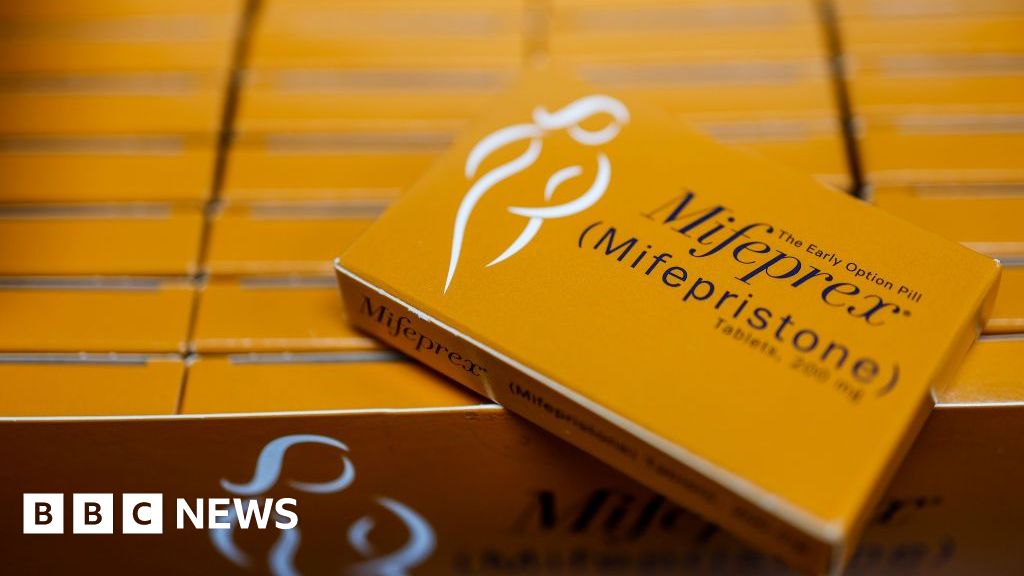The United States Supreme Court has ruled against a lawsuit challenging the Food and Drug Administration’s (FDA) regulation of mifepristone, an abortion pill. This decision was announced on June 13, 2024, during the ongoing debate over reproductive rights in the United States following the overturning of Roe v. Wade in 2022.

Also Read: FDA Warns Against Diamond Shruumz Microdosing Chocolate Bars Linked to Seizures
The Supreme Court in a unanimous decision rejected the lawsuit filed by anti-abortion doctors and medical groups.
The court concluded that the plaintiffs lacked the standing to sue. Justice Brett Kavanaugh, writing for the court, addressed that the plaintiffs did not demonstrate personal injury from the FDA’s regulations.
This ruling represents a defeat for the anti-abortion movement, which had hoped to curtail the availability of mifepristone.
The decision reinforces the FDA’s authority to regulate mifepristone and similar medications without judicial interference.
The lawsuit aimed to revoke the FDA’s approval of mifepristone, claiming it was unsafe. This claim was refuted by mainstream medical organizations.
A federal judge in Texas initially sided with the anti-abortion groups, but the ruling was overturned by the 5th US Circuit Court of Appeals, which maintained the drug’s availability while scrutinizing certain FDA regulations.
The plaintiffs argued that the FDA’s regulation of mifepristone had risks to patients and violated their moral beliefs.
Justice Kavanaugh said that a desire to make a drug less available does not constitute a legal standing to sue. The court highlighted that plaintiffs must show actual injury or harm, which the anti-abortion doctors failed to do.
Organizations supporting abortion rights celebrated the decision, viewing it as a victory for reproductive freedom and the FDA’s drug approval process.
Anti-abortion groups expressed disappointment but signaled their intention to continue legal efforts against the FDA’s regulation of mifepristone and other abortion-related drugs.
Mifepristone, part of a two-drug regimen used in medication abortions, has become the most common method for terminating pregnancies in the US.
The Supreme Court’s 2022 decision in Dobbs v. Jackson Women’s Health Organization has led to increased scrutiny and legal battles over abortion access.
The decision does not affect state-level bans on abortion, which remain in place in several states. Mifepristone continues to be an element in the struggle over abortion rights.
Several GOP-led states have indicated their intent to challenge mifepristone’s availability further, suggesting that legal battles over abortion access are far from over.
Mifepristone was approved by the FDA in 2000 and has been deemed safe by numerous medical organizations.
Also Read: Nancy Mace Wins Republican Primary in South Carolina
Over the years, the FDA has relaxed restrictions on mifepristone, allowing for mail-order distribution and broader access especially during the COVID-19 pandemic.
Mifepristone is the first pill in a two-step medication regimen used to terminate early pregnancies. It works by blocking the hormone progesterone, which is essential for maintaining a pregnancy.
Misoprostol is taken to induce contractions and expel the contents of the uterus. This regimen is about 95% effective in ending pregnancies within the first ten weeks.
Mifepristone was first approved by the U.S. Food and Drug Administration (FDA) in September 2000 for use up to seven weeks of pregnancy and this was extended to ten weeks in 2016. The drug is also used for managing miscarriages and treating conditions like Cushing syndrome.
Over two decades of data and millions of users indicate that mifepristone is a safe and effective medication for abortion.
According to the FDA, the drug is associated with very low rates of serious adverse events including a mortality rate of approximately five deaths per million users.
This mortality rate is lower than that associated with some common medications such as penicillin, which has a rate of about 20 deaths per million due to allergic reactions.
Leading medical organizations including the American College of Obstetrics and Gynecologists (ACOG) and the World Health Organization (WHO) support the safety and efficacy of mifepristone. Claims by anti-abortion groups that the drug is unsafe are not substantiated by credible scientific evidence.
Also Read: Moderna Announces Good Results from Trial of Combo Vaccine
In November 2022, the Alliance for Hippocratic Medicine, a coalition of anti-abortion activists and doctors filed a lawsuit claiming that the FDA’s approval of mifepristone was improper and that the drug was unsafe.
The FDA countered that its approval process, which included reviewing extensive studies over four years, was thorough and that the drug’s safety was evaluated.
The agency had used specific regulatory provisions to ensure safety such as requiring screening for ectopic pregnancies.
The case escalated to the Supreme Court, which ruled unanimously in June 2024 that the plaintiffs lacked the legal standing to sue.
The justices concluded that the plaintiffs did not demonstrate that mifepristone’s availability directly harmed them, stating that a desire to make a drug less available does not provide grounds for legal action.
The decision maintains the FDA’s actions that expanded access to the drug, such as allowing it to be sent by mail and prescribed by a range of healthcare providers.
The FDA relaxed in-person dispensing requirements for mifepristone during the pandemic, allowing it to be sent by mail. This change was made permanent in December 2021.
In 2022, the FDA further expanded access by permitting retail pharmacies to dispense mifepristone, which was previously only available through healthcare providers.
Despite federal measures to increase access, several states have enacted laws to restrict or ban the use of medication abortion.
Anti-abortion groups and some states may continue to pursue litigation to limit or block access to mifepristone.
Some states like Louisiana have enacted laws reclassifying mifepristone and misoprostol as controlled substances, increasing regulatory hurdles and aiming to restrict access further.
In response to the reversal of Roe v. Wade and the ensuing restrictions in many states, the Biden administration has taken steps to expand access to medication abortion including supporting retail pharmacy certification to dispense mifepristone.
Also Read: First Human Case of H5N2 Bird Flu Reported in Mexico, WHO Confirms





















